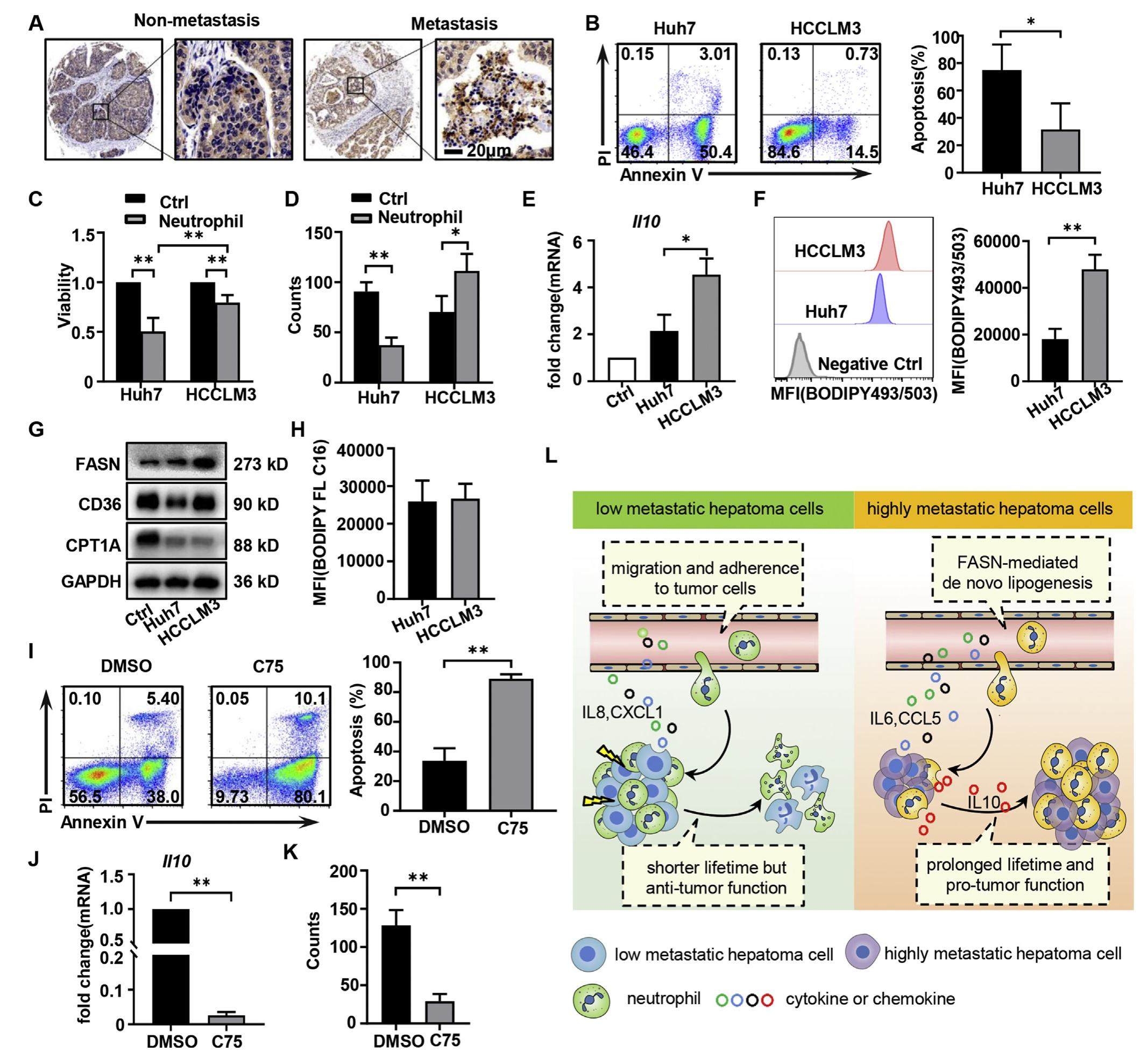
De novo lipogenesis prolongs the lifespan and supports the immunosuppressive phenotype of neutrophils in HCC metastasis


Metastasis is the primary cause of HCC-related death. Neutrophils can activate the antitumor immune response and promote tumor cell clearance. However, most studies show that neutrophils support tumor progression and metastasis. The accumulation of neutrophils contributes to HCC progression and is associated with poor prognosis. Metabolic reprogramming is one of the significant hallmarks of cancers, and immune cells in the tumor microenvironment (TME) undergo complex metabolic alterations. Accumulating evidence indicates that high lipid content and increased fatty acid oxidation (FAO) support neutrophils' immunosuppressive functions of neutrophils. However, the role of neutrophils lipid metabolism in HCC metastasis remains largely unclear. In the present study, we sought to evaluate lipid metabolism in metastasisassociated neutrophils (MANs) and found that de novo lipogenesis (DNL) endows neutrophils with a prolonged lifetime and immunosuppressive phenotype that contribute to HCC metastasis.
